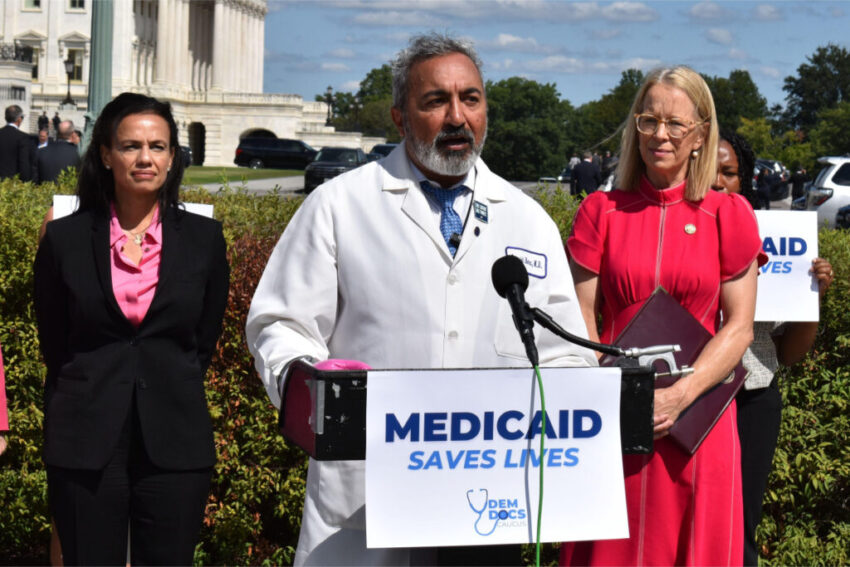
Congressman Dr. Ami Bera, D-California, on September 9, 2025, joined fellow members of the Democratic Doctors Caucus and Planned Parenthood Federation of America President and CEO Alexis McGill Johnson, to warn against cuts to Medicaid, describing them as having a “devastating” impact on access to affordable, high-quality care provided by Planned Parenthood health centers across the country.
“Since President Trump’s “Big, Beautiful Bill” was signed into law, its provision blocking Medicaid patients from receiving care at Planned Parenthood has been temporarily halted by the courts. If reinstated, the provision could force up to 200 health centers to close, putting the health care of 1.1 million Medicaid patients at risk, the press release from Bera’s office said.
“What Planned Parenthood does is so much more than just reproductive health care. They’re a leader there in reproductive health care. But in many communities across this country, they’re the sole provider of primary care services to women and men,” Representative Bera is quoted saying in the press release.
Lawmakers noted that for many individuals in rural and underserved areas, Planned Parenthood centers are often the only accessible source of care for people in rural and underserved areas for critical primary and preventive care services, such as cancer screenings, STI testing and treatment, chronic disease management, and general wellness visits.
“And what Donald Trump’s bill — the big, ugly bill that House Republicans passed — does is it takes away that primary service, those community health center services, from so many Americans, particularly Americans in rural Aerica,” Bera added.
At an open press conference on Capitol Hill, Dr. Bera was accompanied by several Democratic doctors as well as the CEO of Planned Parenthood. He was there he said, “Cause we’re going to fight. We’re going to fight every day. And don’t mess with Planned Parenthood — that’s why I got my boxing glove on here.”
Bera went on to praise Planned Parenthood for doing more than just providing reproductive health care services, but rather it was the sole provider of primary health care services in many communities around the country.



